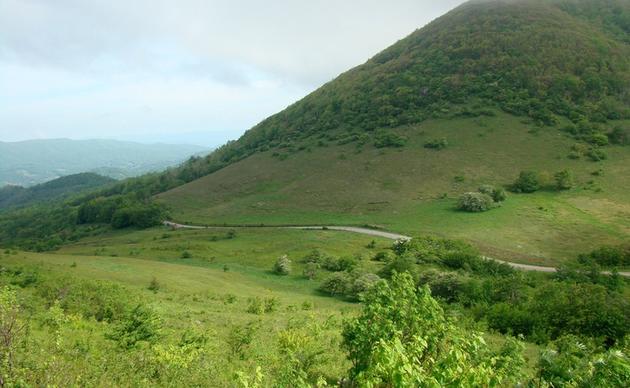Pungo-Pocosin Lakes IBA
A wintertime visit to Pungo-Pocosin Lakes Important Bird Area (IBA) is a magical experience, as you explore vast open spaces and cypress-ringed lakes filled with birds and wildlife. The air will be filled with the calls of thousands of Tundra Swans and Snow Geese. Birders and wildlife viewers delight in the hope of seeing rare species such as Short-eared Owls or Red Wolves.
Located in Hyde, Tyrrell, and Washington Counties, this IBA includes two large natural lakes, Phelps and Pungo, extensive agricultural lands, and forests, which provide habitat for a wide variety of birds. Tundra Swans and Snow Geese spend their nights on the bodies of water and travel to surrounding agricultural lands to feed during the day. The IBA also includes several flooded fields and impoundments, mature hardwood forests along the north shore of Lake Phelps, and pocosin. The site encompasses Pocosin Lakes National Wildlife Refuge, Pettigrew State Park, including Lake Phelps, and private farmland west of these two lakes.
Why is it an IBA?
The site supports 80,000 to 110,000 waterfowl during an average winter. It has North Carolina’s largest wintering concentration of Snow Geese and one of the largest concentrations of Tundra Swans in the state. Tundra Swans breed in Alaska and Western Canada and according to the U.S. Fish and Wildlife Service, approximately 70 – 80% of the eastern population of Tundra Swans winter in eastern North Carolina. Common Mergansers winter on Lake Phelps. The fields west of Lake Phelps have a good wintering population of Short-eared Owl; sometimes 5 to 10 have been reported. During the spring and summer pocosin habitat is home to species such as Worm-eating Warbler, Swainson’s Warbler, Prothonotary Warbler, and other landbirds. The site has one of the state’s highest counts for Northern Harrier during Christmas Bird Counts and Bald Eagles are also seen here during the winter. This IBA is also home to large mammals that need plenty of room to roam, including red wolves, black bears, and bobcats.
Audubon NC’s conservation work in the IBA
Audubon North Carolina and a variety of partners worked diligently to protect this IBA from the ill-conceived Navy Outlying Landing Field, which was ultimately moved to a different location. Audubon and partners are currently working to protect the IBA from adverse effects of potential wind energy development. Other threats to this vast site include invasive species (Phragmites), groundwater extraction, drought, drainage, disturbance to birds, and global climate change impacts.
The natural diversity of the North Carolina landscape supports an equally diverse assemblage of birds. From the spruce-fir forests of the mountains to the barrier islands and ocean waters along the coast, more than 450 bird species have been recorded here, nearly 200 of which are known to breed in the state. Audubon North Carolina, along with our partners, has identified 96 sites in North Carolina that are vitally important to bird species that breed, winter, or migrate through our state. These Important Bird Areas make up Audubon’s blueprint for conservation. Each month, we will highlight an Important Bird Area providing tips on having a fun visit, an overview of the birds and ecosystems we are working to protect, and photos and videos from the site.
What to expect on a visit
The Pungo-Pocosin Lakes Important Bird Area offers a variety of outdoor recreational opportunities, including birding, hiking, paddling, and hunting. Visit the Birding Trail website for more information.
• Pettigrew State Park offers paddling, hiking, birding, and camping. The Pettigrew Christmas Bird Count takes place on December 30, 2011 and includes much of this Important Bird Area. Please contact the park at (252) 797-4475 if you would like to participate in the count, which will start at 6:30 a.m. at the park office on December 30.
• Pocosin Lakes National Wildlife Refuge offers birding, hiking, and wildlife photography opportunities. It is strongly recommended that visitors pick up a refuge map and brochure at the refuge headquarters in Columbia or at the field station on Shore Drive. This is a huge refuge and you can get lost without maps. Hunting is allowed on the refuge at certain times of year so visitors should be aware of current hunting seasons.
How can I help?
A gift to Audubon North Carolina will support our continuing efforts to protect the remarkable waterfowl and wildlife in this wild landscape and help to keep these lands safe for the tens of thousands of waterfowl who rely on this southern wintering spot to rest and feed. To make a donation, click on the link at the bottom of this page.
Your gift of $100 or more will entitle you to a copy of the NC Birding Trail Coastal Plain Edition. Simply check “in honor of” and write Pungo Pocosin IBA in the Person to Notify box on the online giving page.
Your gift of $1,000 or more will entitle you to a winter guided field trip to Pungo-Pocosin Lakes IBA led by Audubon expert Curtis Smalling. On the trip you will be treated to the sights of thousands of Tundra Swans and Snow Geese and other avian delights – but hurry – the waterfowl are only here through February!
How you can help, right now
Donate to Audubon
Help secure the future for birds at risk from climate change, habitat loss and other threats. Your support will power our science, education, advocacy and on-the-ground conservation efforts.
Sign Up For Our eNewsletter
Keep up-to-date on all that happens with Audubon North Carolina's research, events and volunteer opportunities.




